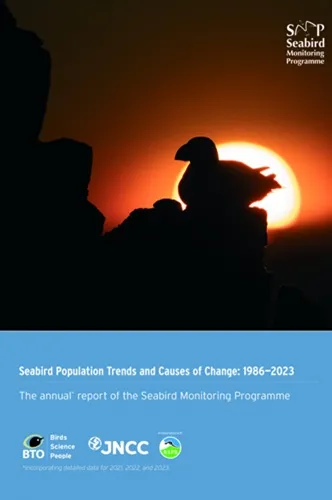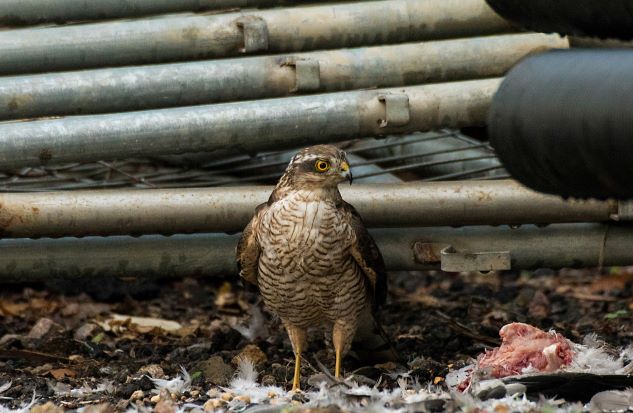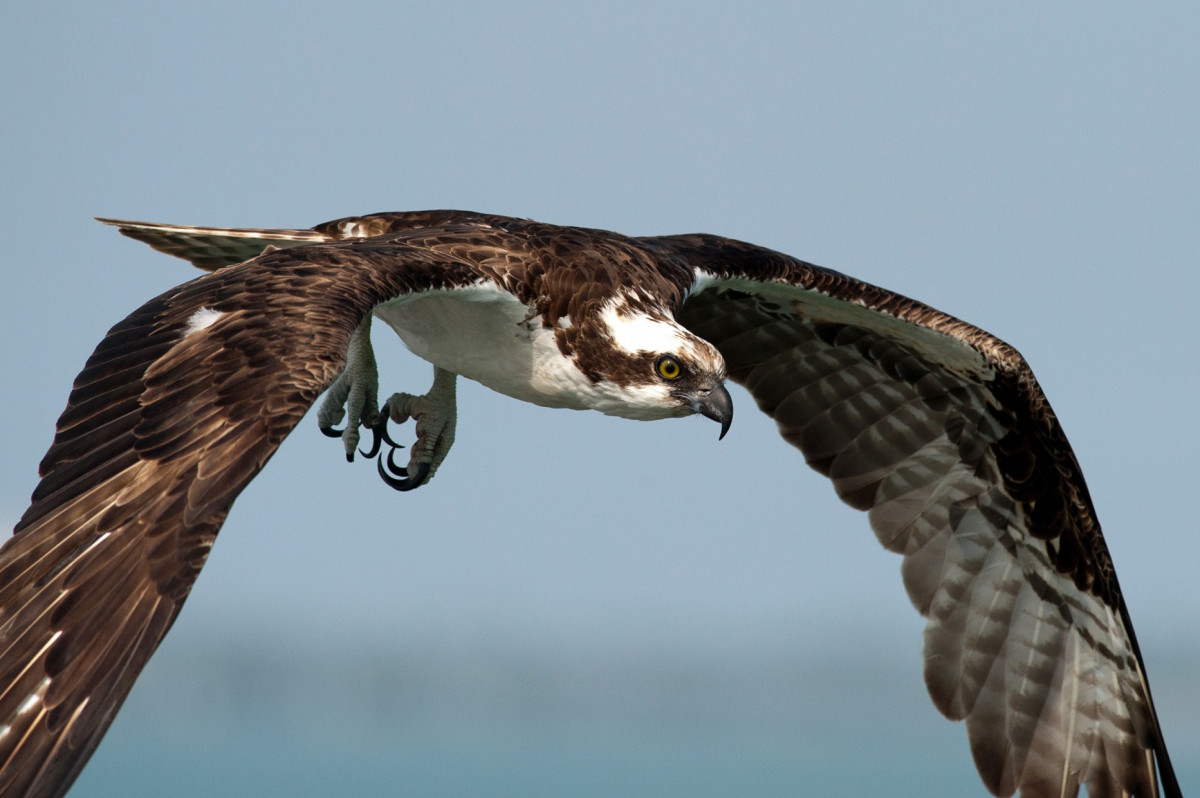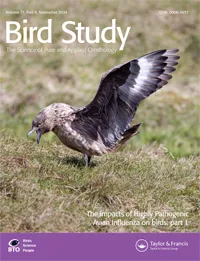BTO create and publish a variety of important articles, papers, journals and other publications, independently and with our partners, for organisations, government and the private sector. Some of our publications (books, guides and atlases) are also available to buy in our online shop.
Annual report of the Seabird Monitoring Programme
Seabird Population Trends and Causes of Change: 1986–2023
This report presents the latest seabird population trends in breeding abundance and productivity using data from the Seabird Monitoring Programme (SMP).
The report documents changes in the abundance and productivity of breeding seabird species in Britain and Ireland from 1986 to 2023, and provides a detailed account of the 2021, 2022 and 2023 breeding seasons.

Search settings
Long-term trends of second generation anticoagulant rodenticides (SGARs) show widespread contamination of a bird-eating predator, the Eurasian Sparrowhawk (Accipiter nisus) in Britain
Author: Broughton, R.K., Searle, K.R., Walker, L.A., Potter, E.D., Glória Pereira, M., Carter, H., Sleep, D., Noble, D.G., Butler, A. & Johnson, A.C.
Published: 2022
Rodenticides are widely used to control small mammal populations. The potential impacts of these compounds on non-target species, such as rodent-specialist predators, have long been a cause for concern. There is also evidence that species that do not usually feed on small mammals, such as bird-specialist predators, are exposed. In the most comprehensive study of its kind, this paper examines the presence of second generation anticoagulant rodenticides (SGARs) over 20 years in the British Sparrowhawk population, in order to establish how contamination patterns vary over time, space and life stage.
23.09.22
Papers

Connectivity between countries established by landbirds and raptors migrating along the African-Eurasian flyway
Author: Guilherme, J.L., Jones, V.R., Catry, I., Beal, M., Dias, M.P., Oppel, S., Vickery, J.A., Hewson, C.M., Butchart, S.H.M. & Rodrigues, A.S.L.
Published: 2022
The importance of the African-Eurasian flyway to long-distance migratory populations is well known, as are the many threats that the birds face on their journeys. Recent advances in tracking technology have provided vital information for conservation action, for example revealing the routes and stopover sites birds use, but work to address any threats identified has been hindered by fragmented and inaccessible datasets. Can bringing these studies into a single resource reveal new information that would enable more effective conservation action?
08.09.22
Papers

Habitat-use influences severe disease-mediated population declines in two of the most common garden bird species in Great Britain
Author: Hanmer, H.J., Cunningham, A.A., John, S.K., Magregor, S.K., Robinson, R.A., Seilern-Moy, K., Siriwardena, G.M. & Lawson, B.
Published: 2022
Infectious disease has been linked to population declines across multiple taxa, including birds, and it is important that we understand how anthropogenic factors, such as urbanisation and the provision of supplementary food at garden feeding stations, may influence its occurrence and impact.
06.09.22
Papers

Behavioural responses of non-breeding waterbirds to marine traffic in the near-shore environment
Author: Jarrett, D., Calladine, J., Cook, A.S.C.P., Upton, A., Williams, J.,Williams, S., Wilson, J.M., Wilson, M.W., Woodward, I. & Humphreys, E.M.
Published: 2022
Marine traffic is increasing globally, but there has been little research investigating the impact of this disturbance, particularly for non-breeding populations in near-shore environments. This study observed the behaviour of 11 seabird species in response to winter ferry passage around Orkney, increasing the evidence base available to inform impact assessments, planning and policy in the marine environment.
02.09.22
Papers

Differential changes in life cycle-event phenology provide a window into regional population declines
Author: Hanmer, H.J., Boersch-Supan, P.H. & Robinson, R.A.
Published: 2022
New research from BTO investigates the effects of climate change on Willow Warblers. The findings, based on volunteers’ ringing and nest recording data, help to explain why birds breeding in different parts of Britain are being affected in different ways.
24.08.22
Papers
